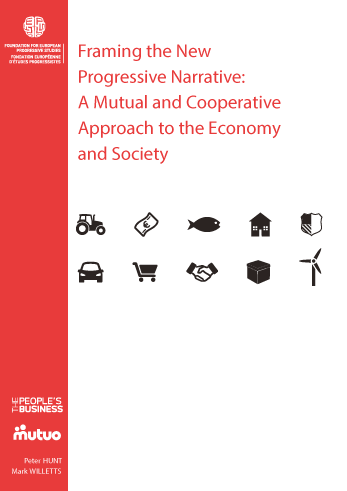We have produced an Activist’s Guide which sets out some ideas for how you could approach influencing your Government and elected representatives.
You can also use our resources in political meetings of progressives to help to campaign for the People’s Business. We have provided a PowerPoint presentation which can be used to explain how a co-operative approach to the economy can benefit citizens across Europe.
We have also included a series of policy summaries, draft speaking notes and draft resolutions for debate. These should help your meetings to be successful by explaining how co-operatives are beneficial in every section of the European economy.
Activist’s Guide
View/download PDFPowerpoint Presentation
PPTX format | PDF formatOverview
- The People’s Business – Resolution (PDF)
- The People’s Business – Draft Speech (PDF)
- Before cooperatives became a force in the retail market, the private sector was not trusted to be a reliable provider of quality, affordable food
- Merchants who aimed for maximum profit would often use spirals of debt to trap their customers into continuing purchasing their goods, whilst neglecting product standards
- This behaviour is what drove communities to create the first cooperative shops in the 19th century, to provide an ethical alternative that was accountable to its customers, who were simultaneously stakeholders in the business
- Individual farmers have often found that it is difficult to both compete in their sector and maintain their independent ownership
- Often, it is simply too expensive for them to carry out the practices that are the basic necessities of agriculture, such as engaging or providing a service, purchasing machinery, or processing and marketing produce
- As a result, many smaller farms struggle to compete with larger firms when left to fend for themselves
- Across Europe, governments are increasingly facing large scale problems as their populations find it difficult to obtain access to quality, affordable housing
- Demographic changes have led to smaller households, and pressures on public finances, coupled with struggles ensuring that the private sector provides an adequate supply of inexpensive homes, have meant that governments have been unable to satisfy the housing needs of their citizens
- At the same time, existing housing stock faces problems of its own, as action is required to make homes more efficient and sustainable to maintain, and improve conditions of the areas in which they reside
- Fostering growth in the renewable energy sector is key to weaning European economies off fossil fuels, and protecting the planet
- However, many households across Europe increasingly struggle to find a source of affordable energy in markets which are often dominated by a few large private firms, which exist to benefit their shareholders, and do not necessarily operate with the best interests of consumers and society at heart
- In addition, the task of building a society reliant on affordable, sustainable sources of power is made more difficult by several factors
- Individual investment in renewable projects is often too expensive to be in reach of large swathes of the public, and even if this is not the case, homes may lack the physical capacity to generate it
- But renewable projects by private firms often generate local opposition, particularly in the case of wind turbines, and many such initiatives struggle to survive without local consent
- The financial crisis and the consequent difficulties it has brought to business has resulted in people losing their jobs across Europe, whilst others have had to face stagnating wages
- In addition, is estimated that 600,000 people around the EU unnecessarily lose work when business owners opt to seek new opportunities, and consequently no successor can be found to step in
- Cooperatives offer a way to remedy many of these problems that affect industry and services, but in many European countries, this potential is held back due to the lack of legislation, finance, and education available to facilitate the foundation of cooperative ownership
- The decades leading up to 2008 were marked by a gravitation away from mutual ownership toward a shareholder based model of private business
- This was particularly true in the banking and insurance sectors, which saw the rise of a monolithic business culture which largely prioritised short term profit over long term sustainability
Policy Summaries, Resolutions & Draft Speeches
Cooperatives have a presence in a number of different sectors across the European Union. In each of these areas, their people focused approach to business can bring a range of benefits to society, such as lowering the costs of living, challenging inequality through higher pay, strengthening local communities by helping business to operate in places where the market would not see value in doing so, and building a more stable economy by encouraging a long-term approach to business that minimises risk.
 Retail
Retail
Policy Summary (PDF) | Draft Speech (PDF)
What is the Issue?
 Agriculture
Agriculture
Policy Summary (PDF) | Draft Speech (PDF)
What is the Issue?
 Housing
Housing
Policy Summary (PDF) | Resolution (PDF) | Draft Speech (PDF)
What is the Issue?
 Renewable Energy
Renewable Energy
Policy Summary (PDF) | Resolution (PDF) | Draft Speech (PDF)
What is the Issue?
 Industry and Services
Industry and Services
Policy Summary (PDF) | Resolution (PDF) | Draft Speech (PDF)
What is the Issue?
 Banking and Insurance
Banking and Insurance
Policy Summary (PDF) | Resolution (PDF) | Draft Speech (PDF)
What is the Issue?
